Frank Gifford's Sports Injuries
Type of Sport: American Football
Frank Gifford's Sports Injuries Table
| Type | Area | Date | Consequences | Content | How It Happened | Recovery Duration | Rehabilitation Details | Impact On Career | Psychological Impact | Previous Injuries | Return To Competition | Severity | Treatment | Medical Staff | Long Term Impact | Preventive Measures | Competition Missed | Initial Symptoms | Re Injury Risk | Support System | Rehabilitation Location |
|---|---|---|---|---|---|---|---|---|---|---|---|---|---|---|---|---|---|---|---|---|---|
| Concussions | Head | 1970-01-01 | He was knocked unconscious and had to be carried off the field. | This was one of the most famous injuries in NFL history. The hit was delivered by Eagles linebacker Chuck Bednarik and led to Gifford missing the entire 1961 season. | Gifford suffered a severe concussion during a game against the Philadelphia Eagles. | 1 year | Gifford underwent extensive medical treatment and physical therapy to recover from the concussion. | Gifford missed the entire 1961 season but made a successful return to the NFL. | The injury had a significant psychological impact, causing Gifford to contemplate retirement. | Gifford had suffered previous injuries but none as severe as this concussion. | Gifford returned to the NFL in 1962 and continued to play until 1964. | Severe | Medical treatment and physical therapy | Team doctors and specialists | Raised awareness about the dangers of concussions in football. | Improved helmet technology and stricter rules on hits to the head. | Entire 1961 season | Unconsciousness, disorientation | High | Family, team, and medical staff | New York, various medical facilities |
| Knee Injuries | Left Knee | 1970-01-01 | The injury required surgery and a lengthy recovery period. | Gifford tore ligaments in his left knee while being tackled. The injury was severe enough to require reconstructive surgery. | Gifford injured his left knee during a game against the Pittsburgh Steelers. | 6 months | Post-surgery, Gifford underwent extensive physical therapy to regain strength and mobility in his knee. | The injury contributed to his decision to retire after the 1964 season. | The injury was a major factor in his contemplation of retirement. | Gifford had a history of injuries but this was his first major knee injury. | Gifford returned to play in the 1964 season but retired afterward. | Severe | Reconstructive surgery and physical therapy | Surgeons and physical therapists | Contributed to the end of his playing career. | Strengthening exercises and knee braces. | End of the 1963 season and part of the 1964 season | Pain, swelling, instability | High | Family, team, and medical staff | New York, various medical facilities |
| Shoulder Injuries | Right Shoulder | 1970-01-01 | The injury caused him to miss several games. | The injury occurred while Gifford was making a tackle. He landed awkwardly on his right shoulder, causing significant pain and limited mobility. | Gifford injured his shoulder during a game against the Chicago Bears. | 4 weeks | Gifford underwent physical therapy and used a shoulder sling to immobilize the area. | The injury caused him to miss part of the season but did not have a long-term impact on his career. | The injury was frustrating but did not cause significant psychological issues. | Gifford had no major shoulder injuries prior to this incident. | Gifford returned to play after a month of recovery. | Moderate | Physical therapy and shoulder sling | Team doctors and physical therapists | No significant long-term impact. | Strengthening exercises and proper tackling techniques. | Several games in the 1956 season | Pain, limited mobility | Moderate | Team and medical staff | New York, team facilities |
Frank Gifford's Sports Injuries Videos
Frank Gifford suffered a brain injury before his death.
We're following the developing story tonight: the family of Frank Gifford says he was suffering from a traumatic brain injury when he died. The former NFL star passed away back in August at the age of 84. Gifford was a running back for the New York Giants until 1964. After his death, his family had his brain studied, and pathologists found he suffered from chronic traumatic encephalopathy, a progressive brain disease linked to the kind of brain injuries football players experience. Gifford was a big supporter of player safety, and his family sees this as a way to honor his legacy. Gifford was a husband and a television personality, along with Kathie Lee Gifford. The two of them called Connecticut home.

Frank Gifford's Family Reveals Football Legend Suffered from Brain Disease After Head Traumas
Frank Gifford's family revealed that he suffered from CTE, a degenerative brain disease, after his death in August. They had his brain studied to contribute to medical research on the link between football and traumatic brain injury. The family announced the findings to promote safety in the NFL. Gifford had worked to understand the connections between head trauma and cognitive and behavioral issues. This revelation coincides with the release of Will Smith's movie "Concussion," which explores the first discovery of CTE in a professional football player.

The Frank Gifford Report | Derrick Crass Injury (1984)
Lying on a treatment table in the sports medicine clinic the following evening, I heard the voice of ABC's Frank Gifford from behind me...

Chuck Bednarik's hit
Rest in peace, Chuck.
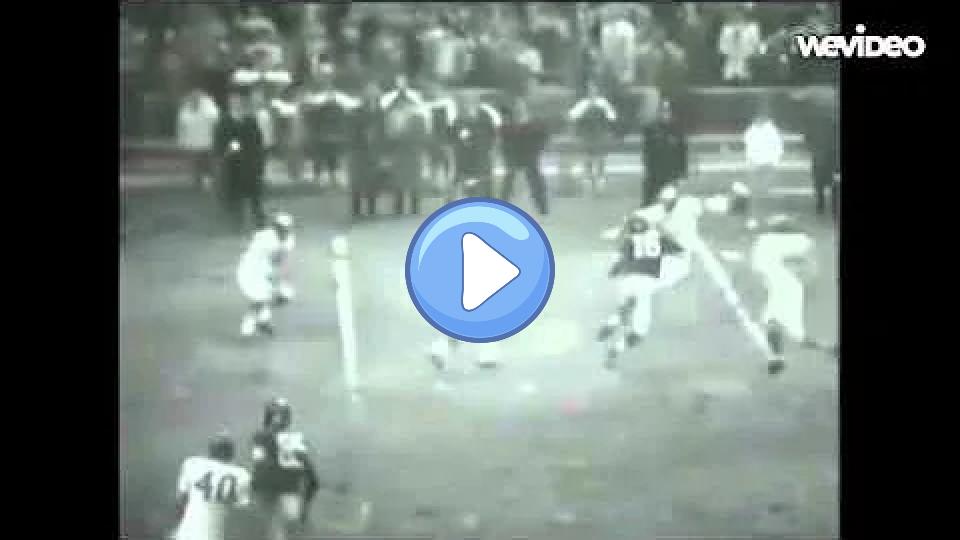
Frank Gifford was diagnosed with CTE.
The family of the late New York Giants star Frank Gifford announced that an autopsy confirmed he had a degenerative brain disease known as CTE. Gifford, who died in August at the age of 84, suffered numerous hits during his 13-year football career. One of the most notable was a devastating hit against the Philadelphia Eagles, which sidelined him for more than a season. Researchers at Boston University found that 96% of former NFL players examined had CTE. The New York Giants and the NFL expressed appreciation for the Gifford family's efforts to advance understanding of CTE, with the NFL working to improve game safety.
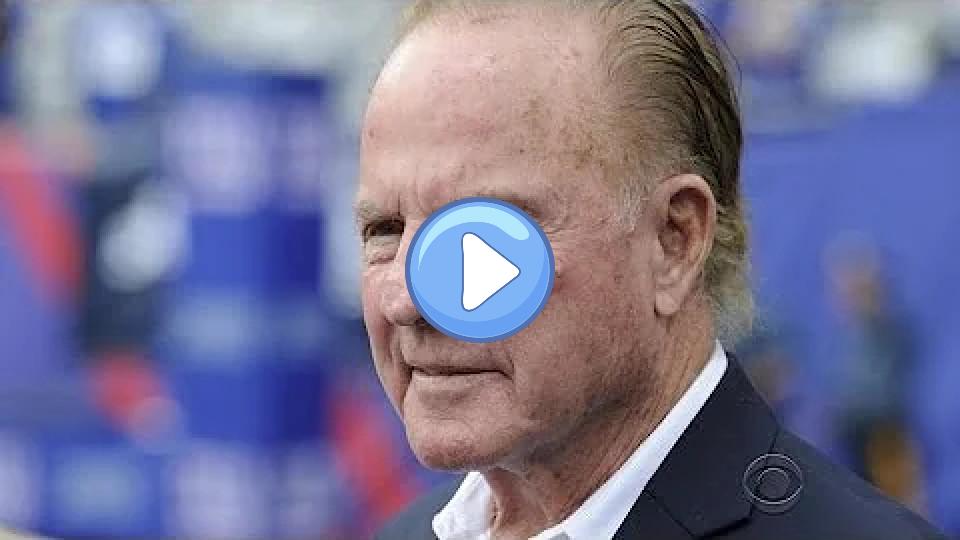
Frank Gifford's Highlights
Frank Gifford was one of the most versatile players in NFL history, joining the New York Giants in 1952. Initially excelling on both offense and defense, Vince Lombardi later insisted Gifford focus solely on offense. Gifford's skills led to seven Pro Bowl appearances and his Hall of Fame induction in 1977. A first-round pick in the 1952 draft, Gifford's all-around ability contributed significantly to the Giants' success, especially in their 1956 NFL Championship win. That year marked a turning point for the Giants and professional football's popularity. Gifford and his teammates became celebrities, frequently appearing in advertisements and TV commercials.
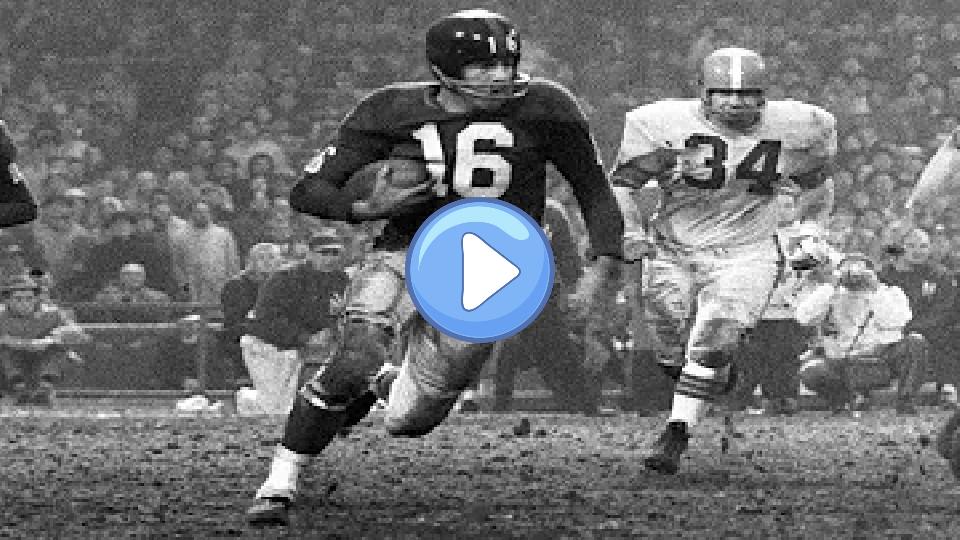
Giants Legend Frank Gifford Diagnosed with CTE Posthumously
Giants legend Frank Gifford, who died at age 84, was diagnosed with CTE, a condition linked to multiple concussions and brain injuries. Gifford, a Hall of Famer, suffered brain injuries during his NFL career, including a severe hit in 1960. After his death, his family donated his brain for research to advance understanding of the connection between football and traumatic brain injury.
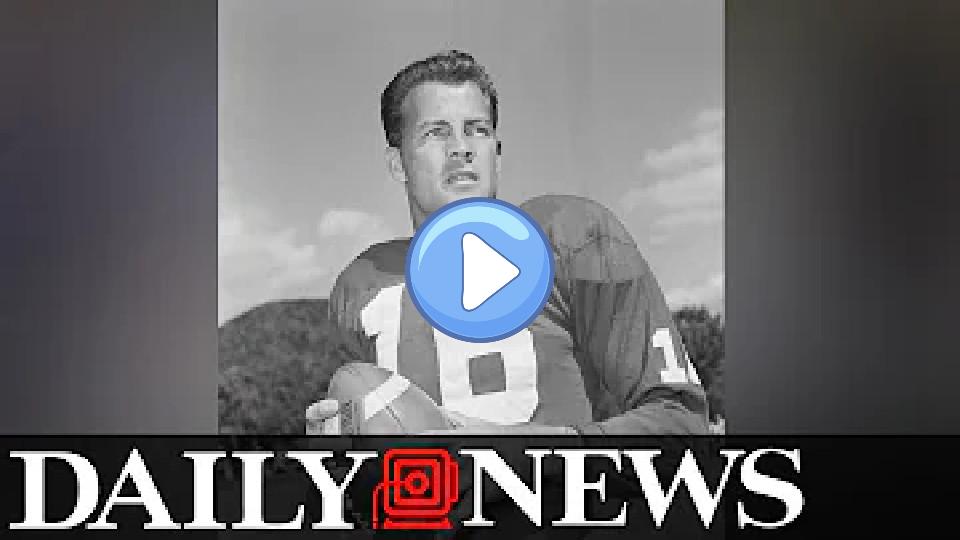
Donnie Shell's Famous Hit on Earl Campbell
Hall of Famer Donnie Shell delivered a famous hit on Earl Campbell, causing Campbell to fumble the ball and leaving him with badly bruised ribs, which sidelined him for the game.
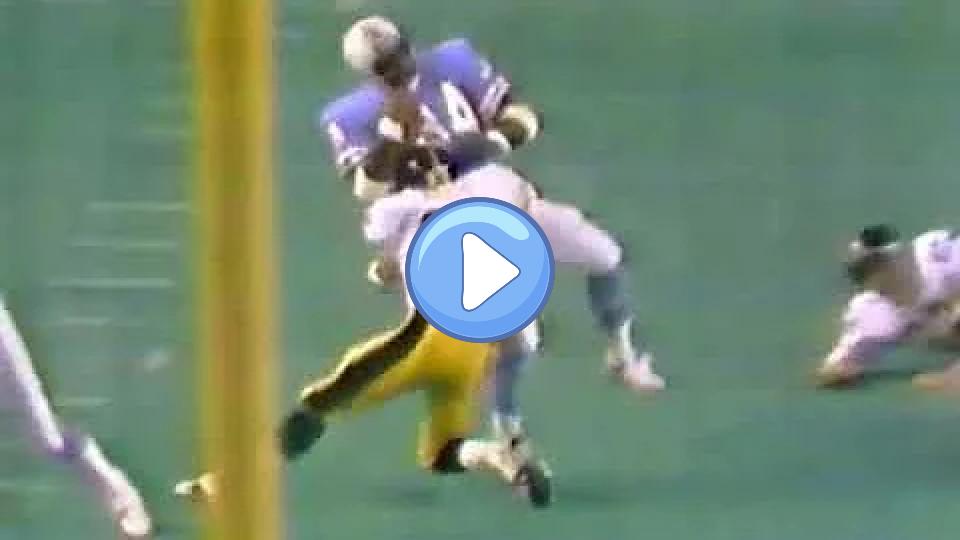
Late football great Frank Gifford was diagnosed with CTE.
Doctors for the late NFL Hall of Famer and sports commentator Frank Gifford say the 84-year-old suffered from the debilitating effects of chronic traumatic encephalopathy (CTE).

